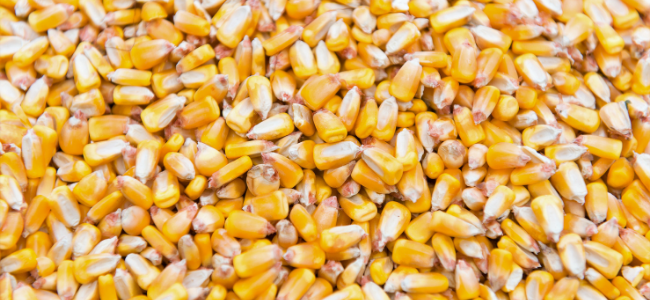The U.S. Grains Council (USGC) has traveled to wet milling plants around the globe over the last few months to present the results of the industrial starch study conducted in three iterations since 2019. The study concluded that U.S. corn is superior for the wet milling process due to its genetic and compositional qualities that result in higher starch yields and higher profitability than corn from other origins.
The study, concluding its third year, has also found that U.S.-origin corn starch extractability is two-to-four percent higher than that of other origins. This creates notable benefits for starch plants around the world, as the study has shown that profitability can increase by nearly $1 million per year for each one-percent increase in yields for a plant that processes 1,000 metric tons (MT) per day.
The commercial trials in three to four industrial plants around the world will be published in a scientific journal and will be the final stage of the project to take the research from the laboratory to the real world application. Corn from South America, Ukraine and the United States will be analyzed as a part of these trials.
“This next step in our initiative allows us to collect key data points that aim to add value to the academic side of our study and test the results in a commercial setting. It also gives plants we partner with the opportunity to receive technical expertise and guidance from experts in the field to identify any possible issues as well as improvements that can be made within the plant,” said Alexander Grabois, USGC manager of global strategies and trade.
“These detailed plant audits are conducted on every site visit and allow plant staff to have detailed discussions on how to improve their processes. We find out what has worked for them, as well as where they can see improvements. Our goal with these audits is to work with our partners to make their facilities as efficient as possible and to optimize their operations so output and profits can be further maximized in the long term.”
Upon the conclusion of the South Korea Industrial Starch Conference in May 2023, the Council has taken steps to finalize these trials, which are scheduled to begin in the fall. These commercial trials are set to last two to three months per location.
“The impact of executing commercial trials will be very noticeable and beneficial for the plants we are partnering with, as this will give them insight into the benefits of U.S. corn use in their plant in the long run. We expect the trials to serve as a driver that will show the global wet milling industry that by purchasing U.S. corn, they can improve the profitability of their plant very quickly. We understand in many markets, U.S. corn is sold at a higher price, but the possible profit benefits can outweigh such a premium,” Grabois said.
“We would like to note that this project has been made possible through a combination of funding from USDA and our members states – the Illinois Corn Marketing Board and the Kansas Corn Commission – an example of a public-private partnership that benefits U.S. agriculture.”
To learn more about the industrial starch program and its findings, view the Council’s starch brochure. Additionally, representatives from international starch plants interested in participating in these trials may contact Alexander Grabois at agrabois@grains.org.
About The U.S. Grains Council
The U.S. Grains Council develops export markets for U.S. barley, corn, sorghum and related products including distiller’s dried grains with solubles (DDGS) and ethanol. With full-time presence in 28 locations, the Council operates programs in more than 50 countries and the European Union. The Council believes exports are vital to global economic development and to U.S. agriculture’s profitability. Detailed information about the Council and its programs is online at www.grains.org.

